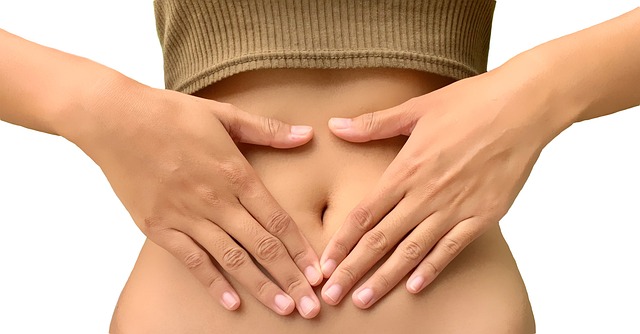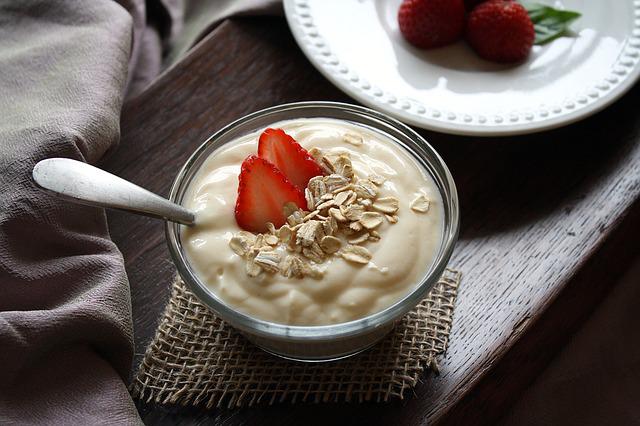There are trillions of bacteria, viruses, and fungi in your body. They are referred to collectively as the gut microbiome.
Gut microbes and the gut bacteria aid digestion and may enhance your immunological, heart, and brain health, among other things.
Some bacteria are associated with disease, but others are vital to your immune system, heart, weight, and a variety of other health factors.
This article introduces the gut microbiome and explains why it is so crucial to your health.
What Exactly Is the Gut Microbiome?
Microorganisms, or microbes, are microscopic living creatures such as bacteria, viruses, fungi, and other microscopic organisms.
Trillions of these microorganisms can be found primarily in your intestines and on your skin.
The gut microbiome is made up of the majority of the microbes in your intestines. They are in a “pocket” of your large intestine called the cecum.
Although there are many different types of microbes that live inside you, bacteria are the most researched.
Here is a fact you might not aware. Human body has more bacterial cells than human cells. In your body, there are around 40 trillion bacterial cells and just 30 trillion human cells. That means you’re more like a bacterium than a human.
Furthermore, the human gut microbiome contains up to 1,000 different species of bacteria, each of which plays a unique role in your body. The majority of them are incredibly beneficial to your health, but others may cause sickness.

These bacteria could weigh up to 2-5 pounds (1-2 kg), which is nearly the weight of your brain. They work as an extra organ in your body and perform an important role to keep you healthy.
To summarize, the gut microbiome is all of the bacteria in your intestines, which function as an additional organ critical to your health.
What Effect Does It Have on Your Body?
For millions of years, humans have evolved to coexist with microbes.
Microbes have learned to serve critical roles in the human body during this time. In fact, without the gut flora, survival would be impossible.
The gut microbiota affects your body from the minute you are born.
As soon as you take your very first breath, you are first exposed to microbes. However, new evidence suggests that babies may be exposed to microbes while in the womb.
Your gut microbiome begins to alter as you grow, indicating that it contains a wide range of bacteria species. Higher microbiome diversity is thought to be beneficial to your health.
Surprisingly, the variety of your gut bacteria is affected by the food you eat.
Your microbiome affects your body in a variety of ways as it grows, including:
Digesting breast milk: Bifidobacteria are bacteria that initially begin to proliferate inside newborns’ intestines. They digest the growth-promoting carbohydrates included in breast milk.
Fiber digestion: Certain bacteria digest fiber, creating short-chain fatty acids that are beneficial to gut health. Fiber may aid in avoiding weight gain, diabetes, heart disease, and cancer risk.
Controlling your immune system: The gut microbiota also influences how your immune system functions. The gut microbiota can influence how your body responds to illness by connecting with immune cells.
Brain functions: The latest research suggests that the gut microbiome may also influence the central nervous system, which controls brain function.
As a result, the gut microbiome can disrupt important biological functions and influence your health in a variety of ways.
SUMMARY: The gut microbiota influences the body from birth to death by regulating food digestion, the immune system, the central nervous system, and other biological systems.
The Gut Microbiome Could Influence Your Weight
In your intestines, there are thousands of different varieties of bacteria, the majority of which are beneficial to your health.
Too many unhealthy bacteria, on the other hand, can cause disease.
Gut dysbiosis refers to an imbalance of beneficial and bad bacteria that may contribute to weight gain or loss.
Some studies have shown that the gut microbiome of identical twins, one of whom had obesity and the other who did not, differed dramatically. This proved that changes in the microbiome were not inherited.
In one study, mice who received the microbiome of the heavier twin gained more weight than mice that received the microbiome of the other sibling, despite both groups eating the same diet.
According to these findings, microbiome dysbiosis may have a role in weight gain.
Probiotics, on the other hand, are beneficial to healthy microbiota and can aid in weight loss. Nonetheless, research indicates that the effects of probiotics on weight loss are likely to be minor, with people losing less than 2.2 lbs/ 1 kg.
SUMMARY: Gut dysbiosis can contribute to weight gain. However, probiotics have the ability to restore gut health and aid in weight loss.
It has an impact on gut health
The microbiome can also have an impact on gut health and may be involved in intestinal disorders like inflammatory bowel disease, and irritable bowel syndrome.
Bloating, cramping, and stomach pain may be caused by gut dysbiosis in persons with IBS. This is because microorganisms produce a lot of gas and other substances, which contribute to gut discomfort feelings.
Certain healthy bacteria in the microbiome, on the other hand, can improve gut health.

Probiotics and yogurt contain Bifidobacteria and Lactobacilli, which can help close gaps between intestinal cells and prevent leaky gut syndrome.
These species can also keep pathogenic bacteria from adhering to the gut wall.
In fact, consuming probiotics like Bifidobacteria and Lactobacilli can help lessen IBS symptoms.
SUMMARY: A healthy gut microbiome regulates gut health by interacting with intestinal cells, digesting specific meals, and preventing disease-causing bacteria from adhering to the intestinal walls.
The Gut Microbiome Could Help Heart Health
Surprisingly, the gut microbiome may even have an impact on heart health.
A new 1,500-person study discovered that the gut microbiota was significant in boosting “good” HDL cholesterol and triglycerides.
Some harmful gut microbiome species may also contribute to heart disease by producing trimethylamine N-oxide.
TMAO is a molecule that can block artery, which can result in strokes or a heart attacks.
Certain bacteria in the microbiome convert choline and L-carnitine, both found in red meat and other animal-based foods, to TMAO, potentially increasing risk factors for heart disease.
When taken as a probiotic, other bacteria in the gut microbiome, particularly Lactobacilli, may help lower cholesterol.
SUMMARY: Certain bacteria in the gut microbiome can create compounds that can cause artery blockage and heart disease. Probiotics, on the other hand, may help decrease cholesterol and the risk of heart disease.
It may aid in blood sugar control and reduce the risk of diabetes
The gut microbiome may also aid in blood sugar control, which may influence the risk of type 1 and type 2 diabetes.
A new study looked at 33 infants who were genetically predisposed to type 1 diabetes.
It was discovered that the diversity of the microbiome decreased abruptly prior to the onset of type 1 diabetes. It was also discovered that the number of harmful bacterial species increased soon before the onset of type 1 diabetes.
Another study discovered that even when persons ate identical items, their blood sugar levels could vary significantly. This could be because of the microorganisms in their stomachs.
SUMMARY: The gut flora influences blood sugar regulation and may influence the occurrence of type 1 diabetes in children.
It may have an impact on brain health.
The gut microbiota may also improve brain function in a variety of ways.
First, certain bacteria can aid in the production of neurotransmitter, substances in your brain. Serotonin, for example, is an antidepressant neurotransmitter that is primarily produced in the gut.
Second, the gut and brain are physically linked by millions of nerves.
As a result, the gut microbiota may influence brain health by assisting in the management of messages conveyed to the brain via these nerves.
Several studies have found that people with various psychological disorders have different bacteria species in their guts than healthy people. This implies that the gut microbiome may have an impact on brain health.
It’s unclear, however, whether this is merely due to varied dietary and lifestyle choices.
Certain probiotics have also been shown in a small number of studies to improve symptoms of depression and other mental health disorders.
SUMMARY: By producing communication nerves that connects to the brain and brain chemicals, the gut microbiome may influence brain health.

How Can Your Gut Microbiome Be Improved?
There are numerous ways to increase your gut microbiome, such as:
Consume a wide variety of foods: This might result in a diversified microbiome, which is an indicator of healthy gut health. Legumes, beans, and fruit, in particular, are high in fiber and can increase the growth of beneficial Bifidobacteria.
Consume fermented foods: Fermented foods, such as yogurt, sauerkraut, and kefir, contain good bacteria, primarily Lactobacilli, and can help to reduce the number of disease-causing species in the stomach.
Reduce your consumption of artificial sweeteners: Some data suggest that artificial sweeteners, such as aspartame, raise blood sugar by encouraging the growth of harmful bacteria in the gut microbiome, such as Enterobacteriaceae.
Consume prebiotic foods: Prebiotics are a form of fiber that promotes the growth of beneficial microorganisms. Artichokes, bananas, asparagus, oats, and apples are all high in prebiotics.
Breastfeed for a minimum of six months: Breastfeeding is critical for the growth of the gut flora. Children who have been breastfed for at least six months have higher levels of beneficial Bifidobacteria than those who have been bottle-fed.
Consume entire grains: Whole grains are high in fiber and beneficial carbohydrates like beta-glucan, which are absorbed by gut bacteria and can help with weight loss, cancer risk, diabetes, and other conditions.
Consider a plant-based diet: Vegetarian diets may help lower levels of pathogenic microorganisms like E. coli, as well as inflammation and cholesterol.
Consume polyphenol-rich foods: Plant components called polyphenols can be found in red wine, green tea, dark chocolate, olive oil, and whole grains. The microbiome breaks them down to promote healthy bacterial development.
Take a probiotic supplement: Probiotics are living bacteria that can aid in the restoration of the gut to a healthy state following dysbiosis. They accomplish this by “reseeding” it with beneficial bacteria.
Only use antibiotics when absolutely necessary: Antibiotics destroy both healthy and bad bacteria in the gut microbiome, which may contribute to weight gain and antibiotic resistance. As a result, only use antibiotics when medically essential.
A diverse diet of high-fiber and fermented foods promotes a healthy microbiome. Taking probiotics and limiting antibiotics can both help.
To Conclusion
Trillions of fungi, bacteria, and other microorganisms live in your gut microbiome.
The gut microbiome is incredibly crucial to your health since it helps control digestion and benefits your immune system, among other things.
Weight gain, high cholesterol, high blood sugar, and other illnesses may be exacerbated by an imbalance of toxic and beneficial microorganisms in the intestines.
Eat a mix of fruits, vegetables, whole grains, and fermented foods to assist and encourage the growth of healthy microorganisms in your gut.
